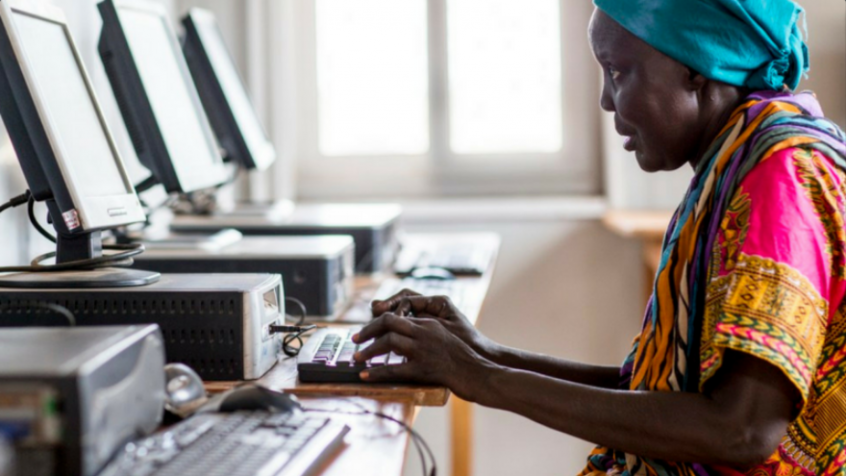
Are new technologies leaving us all behind?
Our societies have to evolve in sync with new technologies or we all risk being left behind and ill‑adapted to the new reality around us, a high-level expert panel warned this week on the sidelines of the 56th UN Commission for Social Development.
The way we innovate our social policies is just as important as how we innovate technology, stressed the panelists at the event, entitled “Towards sustainable and resilient societies: Innovation and interconnectivity” for social development”. The meeting brought together some of the greatest minds in interconnectivity and in social development innovation to discuss how new technologies could benefit everyone, not just the most privileged.
The Sustainable Development Goals aim at promoting innovation and building sustainable infrastructure and inclusive communities. Interconnectivity and digital technologies are an important piece of the development puzzle. Innovations, such as artificial intelligence, mobile payments, high-speed Internet or blockchain create new economic opportunities for all sectors of the society and enable progressive and inclusive social policies that leave no one behind.
There are many ways that interconnectivity can improve the lives of people, especially in remote, rural communities around the world. In China, for instance, access to the Internet opened a whole new world of possibilities for many struggling communities.
Panelist Dr. Sen Gong cited the example of the Chinese “Taobao villages” – places that have escaped poverty and are now booming thanks to online shops they have set up on the popular shopping website Taobao. These e-businesses are projected to create 3 million jobs by 2020. With the help of grassroot entrepreneurship and local government, people have proven that they can create economic opportunities and revitalize rural communities through the power of new technologies.
Innovative social policies and interconnectivity can also help in areas, such as access to new digital technologies, gender equality and freedom of information. Ensuring that women and men have equal access to digital technologies and freedom of expression is especially important if our societies are to develop evenly and leave no one behind.
The panelists also stressed the importance of preparing our societies for the rapidly changing technology landscape. As Noor Al Malki Al Jehani noted, it is vital that parents, youth and children are well adapted to this new reality. Her home country of Qatar has developed a range of informational materials, such as mobile apps and online resources that help children, parents and educators understand and teach new technologies in an accessible way.
The panelists agreed that we need better data on interconnectivity and new technologies to make sure they benefit all societies and everyone within them.

Follow Us